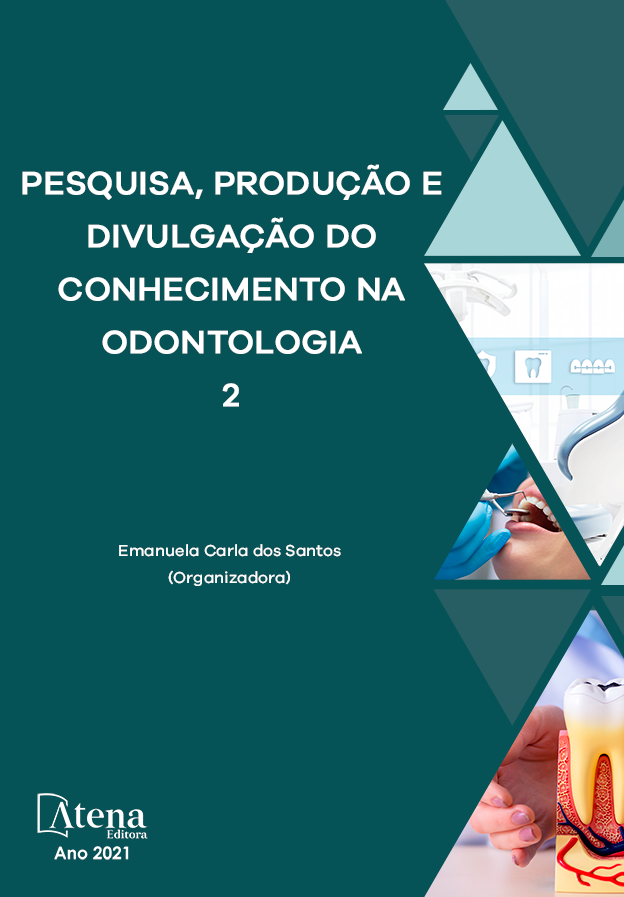
ALEITAMENTO MATERNO EXCLUSIVO, DIETA CARIOGÊNICA E HÁBITO DE SUCÇÃO NÃO NUTRITIVA EM BEBÊS AOS SEIS MESES DE VIDA
O presente estudo tem como objetivo elencar os principais fatores referentes à suspensão do aleitamento materno exclusivo, oferta de dieta cariogênica e justificativas para o hábito de sucção não-nutritiva previamente aos seis meses de vida de bebês nascidos entre março e abril de 2020 nas dependências de um Hospital Escola no Sul do Paraná. Trata-se de um estudo descritivo, transversal, aninhado de uma coorte realizada em um Projeto de Extensão de Saúde Bucal. Por meio de entrevistas estruturadas, conduzidas pelos pesquisadores e direcionadas às mães das crianças acompanhadas pelo projeto, a coleta de dados foi realizada mediante teleatendimento durante o período de setembro a outubro de 2020, devido ao contexto da pandemia pelo novo Coronavírus. Os dados obtidos foram registrados em um formulário eletrônico semiestruturado (Google Forms®) contendo questões referentes ao aleitamento materno, introdução alimentar e hábito de sucção não nutritiva (chupeta). A amostra final foi composta por 131 crianças, das quais, 79 (60,3%) foram mantidas sob aleitamento materno de forma exclusiva e 52 (39,7%) tiveram algum tipo de contato com fórmulas infantis e/ou alimentos sólidos antes dos seis meses. Uma taxa de 117 (89,3%) crianças encontravam-se no período de introdução alimentar, onde 83 (70,9%) recebiam dieta livre de açúcar processado e 34 (29,1%) recebiam algum tipo de alimento contendo sacarose. Quando questionadas sobre o uso de bico artificial, 101 (77,1%) das mães relataram ter ofertado a chupeta em algum momento ao longo dos seis meses de vida da criança, destas, 66 (50,4%) permaneceram com o hábito. Evidencia-se, assim, a necessidade de atuação da equipe multidisciplinar com vistas a capacitar a mãe e sua rede de apoio sobre as práticas recomendadas na primeiríssima infância, a fim de proporcionar melhor qualidade de vida aos bebês e desta forma, diminuir posteriores agravos em saúde.
ALEITAMENTO MATERNO EXCLUSIVO, DIETA CARIOGÊNICA E HÁBITO DE SUCÇÃO NÃO NUTRITIVA EM BEBÊS AOS SEIS MESES DE VIDA
-
DOI: 10.22533/at.ed.2912118016
-
Palavras-chave: Saúde da Criança; Promoção da Saúde; Aleitamento Materno; Dieta Cariogênica; Chupetas
-
Keywords: Child Health; Health Care; Breast Feeding; Diet Cariogenic; Pacifiers
-
Abstract:
The present study aims to list the main factors related to the suspension of exclusive breastfeeding, provision of a cariogenic diet and justifications for non-nutritive sucking habit prior to the six months of life of babies born between March and April 2020 on the premises of a teaching hospital in southern Paraná. This is a descriptive, cross-sectional study, nested in a cohort carried out in an Oral Health Extension Project. Through structured interviews, conducted by the researchers and directed to the mothers of the children monitored by the project, the data collection was carried out through call center during the period from September to October 2020, due to the context of the new Coronavirus pandemic. The data obtained were recorded in a semi-structured electronic form (Google Forms®), containing questions related to breastfeeding, food introduction and pacifier use. The final sample consisted of 131 children, of which 79 (60.3%) were exclusively breastfed and 52 (39.7%) had some kind of contact with infant formulas or solid foods before six months. A rate of 117 (89.3%) children were in the period of food introduction, where 83 (70.9%) received a diet free of processed sugar and 34 (29.1%) received some type of food containing sucrose. When asked about the use of an artificial beak, 101 (77.1%) of the mothers reported having offered the pacifier at some point during the child's six months of life, of which 66 (50.4%) remained with the habit at six months of life. In this way, the need for the multidisciplinary team to act in order to train the mother and her support network on the practices recommended in very early childhood is highlighted, in order to provide a better quality of life for babies and thus reduce subsequent health problems.
-
Número de páginas: 13
- Jessica Galvan
- Mariana Xavier Borsoi
- Fabiana Bucholdz Teixeira Alves
- Mittalys Wuana Pilatti Andrade e Silva


